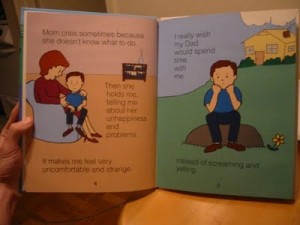PFOX (Parents and Friends of Ex-gays) gets a little national face time with this article on the FOX News website. It seems they can’t get anybody to take their books. Here are the books they want school libraries to include:
- Parents Guide to Preventing Homosexuality by Joseph and Linda Nicolosi
- You Don’t Have to Be Gay by Jeff Konrad
- My Genes Made Me Do It! by Neil and Briar Whitehead
- Gay Children, Straight Parents: A plan for family healing by Richard Cohen
- This Side of Jordan by Bill Kassel
- Marriage on Trial by Glenn Stanton and Bill Maier
PFOX complains that explicit books involving sexual descriptions are in libraries so these books should be too. That is comparing apples and oranges it seems to me. The libraries are not rejecting these books over their explicit nature, but rather due to the lack of published reviews of their suitability for a K-12 audience.
I think the books should be included in the libraries but am not persuaded to this position by the rationale of PFOX. Their position seems to be: you have a bunch of bad books already, why not include a few more? I would rather lobby for the removal or at least restriction of sexually explicit books, rather than use the existence of the books as a basis for adding more books.
My thinking is that students who want to research sexual orientation and the controversies surrounding the issue should have access to some pro-change books simply for the sake of research. Unless one has access to primary sources, one cannot do high quality work. I favor a system where parents help decide on what books can be restricted. The books PFOX wants included could be placed in a religion section or some reserve section where parent or teacher permission is needed to check them out. Libraries could include disclaimers such as a notation in Richard Cohen’s book that he was expelled from the ACA. On balance, I suspect that the books would not be looked at much.
As usual, in this article there is a doozy from Regina. She is quoted as saying:
Griggs also says, as a woman with an ex-gay cousin and a gay son, her goal and that of the organization’s is not to “cure” homosexuals. She says it is to promote tolerance of those who have left that lifestyle.
“It’s almost an attack on us as an organization merely because we want to allow people to have all the information on both sides,” Griggs said. “We aren’t out there forcing people to do anything … they have a right to know all of the facts to determine for themselves.”
“Therapy is not the issue — tolerance is,” she added. “Expect more lawsuits nationwide.”
A look at the list of books should cast doubt on these statements. Earlier in this article, Griggs is quoted as saying:
PFOX Executive Director Regina Griggs says the group just wants anyone struggling with unwanted same sex attractions to know all of the options available to them.
These books (with the exception of Stanton and Maier’s book) are all about changing orientation or preventing homosexuality. Having presented at a PFOX conference in the past, I can tell you that the conference was not about tolerance, but all about change of orientation. Therapy was always the issue, specifically reparative therapy.

